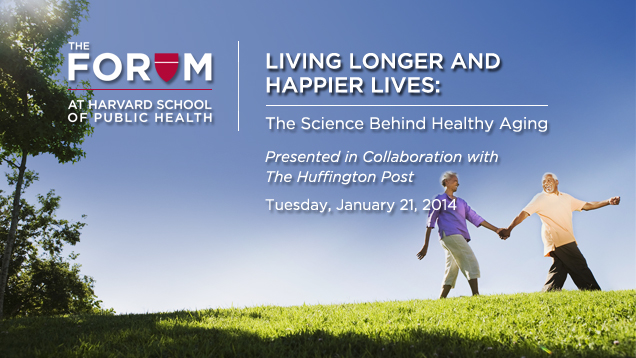This panel is presented at The Forum at Harvard School of Public Health in collaboration with The Huffington Post.
As part of HuffPost Healthy Living's continued collaboration with the Harvard School of Public Health, Editorial Director Meredith Melnick joined leading experts in genetics, epidemiology, medicine and centenarian studies on Tuesday to discuss what we know about longevity, aging healthfully and the future of old age. Tune in later for highlights from the discussion.

Although we know more about the science and genetics of aging than ever before, we live in an era in which American longevity is outpaced by nearly every other industrialized nation -- particularly among women, whose life expectancy is virtually stagnant, according to Lisa Berkman, social epidemiologist and director of the Harvard Center for Population and Development Studies.
"Americans live shorter lives and experience more injuries and illnesses than people in other high-income countries," wrote the authors of a 2012 National Research Council report, U.S. Health In International Perspective. "The U.S. health disadvantage cannot be attributed solely to the adverse health status of racial or ethnic minorities or poor people: even highly advantaged Americans are in worse health than their counterparts in other, 'peer' countries."
That isn't just a problem for those facing advanced age -- it's an indication that the public health is compromised by many of the illnesses that lead to premature death, including neurodegenerative diseases, some cancers and metabolic disease. Although the solution will be found through medical and public health inquiry, it is also a policy and economic priority for all societies who must contend with aging populations.
"Determining the causal underlying cellular and molecular processes that deteriorate with age and lead to increased disease susceptibility and frailty is critical if we are to meet the growing healthcare needs of aging human populations," explained William Mair, Ph.D., an assistant Professor of Genetics & Complex Diseases at the Harvard School of Public Health.
Tuesday's panel discussed some of the latest research on aging in America -- what limits our longevity and our wellness as we reach advanced age? And what can we do about it?
Please continue the discussion in the comments below.